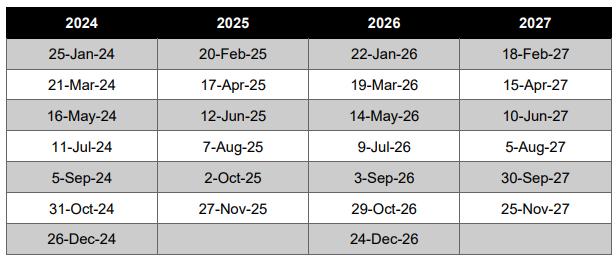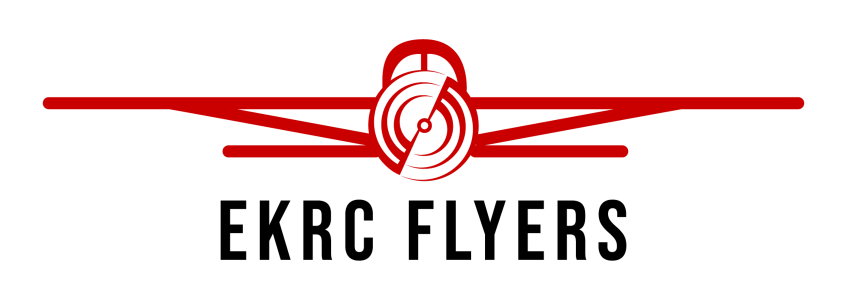Rules
FAILURE TO OBSERVE THESE RULES and abide by all safety rules of MAAC and TRANSPORT CANADA and all
RPAS Regulations CAN SERIOUSLY AFFECT THE OUTCOME OF ANY CLAIMS MADE AGAINST YOUR MAAC
LIABILITY INSURANCE and may result in cessation of MAAC and EKRCFLYERS membership.
Administrative Rules
1. No person shall be allowed to fly at our field without current MAAC and EKRCFLYERS memberships. You must have your MAAC card with you when flying.
2. All persons wishing to fly at our field are required to be club members with the following exceptions:
a. EKRCFLYERS guests may fly six times a year as long as they have a current MAAC membership and are accompanied by a current club member. Open house “Fly inns Contests, where all clubs and MAAC pilots are invited, will not count against guest flyers number of times they can fly here.
b. Persons with an MAAC chartered club membership from out of town are welcome to fly with us whenever they are in town if they are accompanied by one of our club members.
3. All club members are expected to be supportive and helpful to our guests.
4. No camping at the field.
5. Field is open daily with access with your combination code at the locked entrance gate.
6. We are permitted to use this field by the BC government MOF under the permission policy and cannot at this time install signs or make any improvements to the field.
7. Washroom facilities are not available, go before you arrive.
8. Do not litter and pick up garbage if found.
Site Operating Procedures and Rules
1. Members must have read and agreed to all MAAC safety requirements.
2. All members must have a personal fire extinguisher available for use when flying at the field.
3. All transmitters must adhere to MAAC policy.
4. All members must have a MAAC reportable occurrence and MAAC Incident (accident) reports form to be completed by Flyer, Witness and Executive in event of an accident.
5. Spectators are welcome and encouraged and must remain outside the areas designated for pilots only.
6. Individuals under 16 years of age must be accompanied by a parent or acting guardian at all times.
7. No small children are allowed at or near the flight line and all animals shall be on a leash at all times.
8. Pick up your broken props and any other RPAS parts; they play havoc with the mower.
9. All spectators must remain behind the indicated lines unless escorted by a club member. If a guest of a pilot or spotter of a pilot is not a MAAC member the safety officer is to be advised before any non-members cross into the flight area.
10. No flying when anyone, members or animals, are on the field or flight line or within 100 feet of the field. Occasionally dog walkers or hikers sometimes appear on the field. Stop flying immediately.
11. Every new flyer must pass an orientation flight. A Junior program will be developed in due course.
12. New trainees must use a buddy box with the trainer.
13. All new models must be checked for proper control set up and general condition for safety. An aircraft inspection checklist must be completed and retained by the inspector.
14. Maiden flights require an airworthy inspection check list completed by a safety officer.
15. All engine run ups should be inside the designated pit area unless previous authorization is received from the safety officer.
16. All pilots must arrange to have their own spotter when required.
17. Announce takeoffs, landings, which shall be executed with prevailing traffic patterns. Changes in the direction should occur only when all aircraft have landed and all pilots have been informed.
18. Notify all pilots before walking onto or crossing the runway.
19. Fly only within an invisible line down the center of the runway flight line that extends within the known boundaries of our field as indicated on our MAAC sanctioned field drawings. Failure to comply could result in a complete loss of flying privileges. Pilots who ignore this rule are in violation of the posted MAAC safety code and may be forced to relinquish their membership with the following exception:
a. Fixed wing aircraft, drones and helicopters (RPAS) temporarily out of the pilot’s control.
20. If anyone calls deadstick clear the flight line. Once dead stick is declared, all other flyers perform a go around.
21. No aircraft will be taxied back to the pit area. Shutdown of engine is to occur at the taxiway entry.
22. If there is any type of near miss or safety concern between a full-scale aircraft and our RPA, all flying shall cease immediately. The members involved should fill out a MAAC reportable occurrence report and submit that to the Club executive and follow MAAC policy with the following exceptions:
a. If the member(s) involved believe the risk was very minimal, they may complete their own self declaration or risk assessment using the MAAC form. Submit a copy of the form to the club executive when able and recall you must keep this form for one year (CAR901.49 (2)). Resume flying when done.
b. If the member or Club executive deems the event serious, flying will not resume until members are given permission by the Club executive – in writing.
c. If there is actual contact between an aircraft and a MAAC RPAS – all flying will cease until MAAC confirms we may resume operations.
d. This process is for your protection.
23. No RPA or other model aircraft flying will occur below the Club mandated weather minimum. Members may determine the weather themselves with direct observation or use any other source:
a. If cloud is present below 1000’ above the model flying area
b. a horizontal visibility requirement of less than 3sm around the flying area, and
c. if there are other obscuring conditions (fog, smoke, haze etc.) which could make spotting full-scale aircraft difficult.
24. There are no other risk mitigating strategies required at EKRC Flying Club. The MAAC “see and avoid” technique has been determined to be adequate to ensure aviation safety.
25. The Club leadership will review these rules once per year.
Site Survey Schedule
26. As soon as possible after the NAV CANADA publication effective dates provided below, a club or site designate
must check for any changes to airspace, nearby aerodromes, or aerodrome procedures via an RPAS Wilco Site
survey. If there are changes, the new site survey must become the official site survey.

